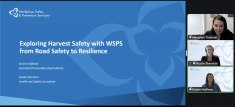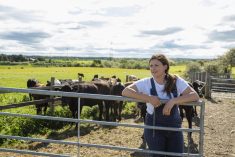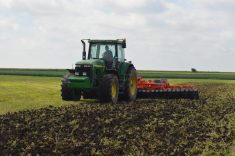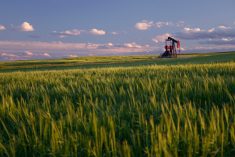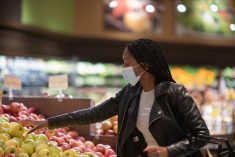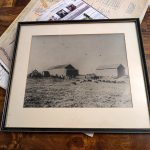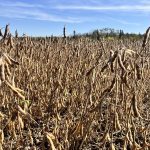Farmers concerned about the spread of COVID-19 can learn from the hog sector on the matter of protecting themselves and their workers, says a leading expert on biosecurity in the pork industry.
“This is the world of biosecurity that the swine industry deals with on a daily basis,” said Dr. Egan Brockhoff, veterinarian counsellor for the Canadian Pork Council. “This is not new to them. This is new to most of the general public, and most other farm commodities.”
Start with the advice being given by health authorities everywhere, he said — cough into your elbow (not your hands); avoid touching your eyes, nose and mouth; keep one metre away from people (and at least two metres away from anyone who is visibly symptomatic); and try not to share objects such as phones, tablets or remote controls.
Read Also
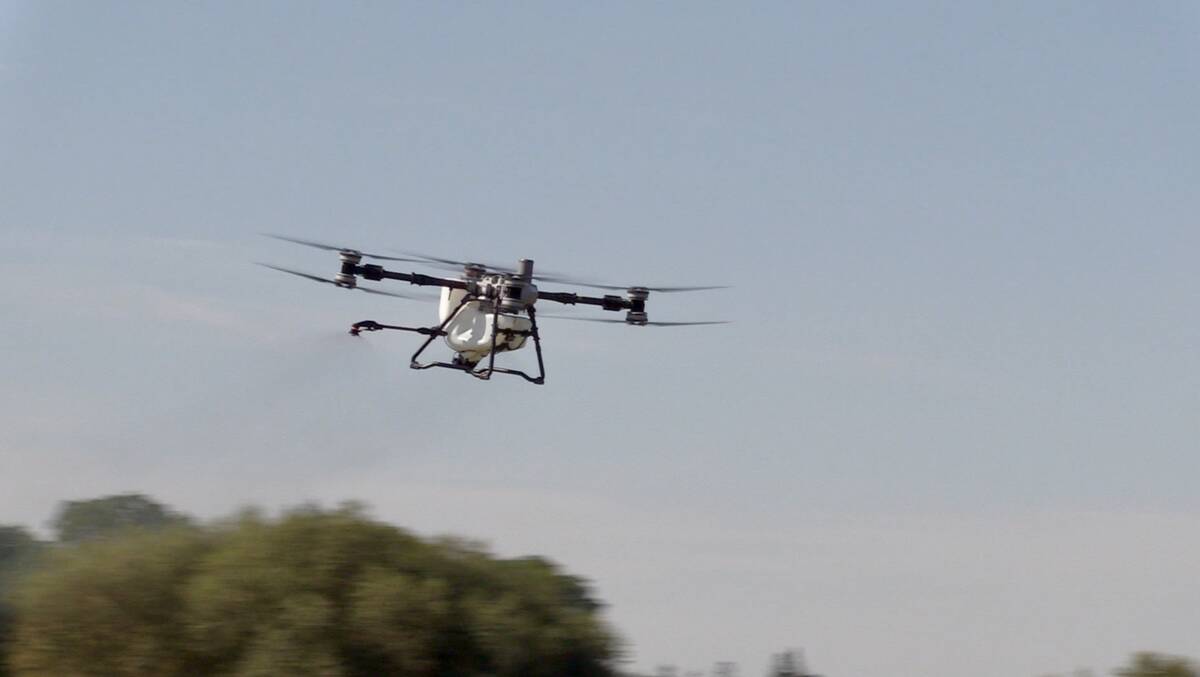
Consultations open on expanded regulations for drone pesticide application
Health Canada is seeking public opinion on proposed rules that would allow pesticides to be applied by drone if the chemicals are already registered for aerial application.
And wash your hands, frequently, with soap and water for at least 20 seconds. “If that’s not available, use a hand sanitizer with 60 per cent alcohol or greater,” said Brockhoff.
At both home and on the farm, “control your environment,” he added. That means frequently cleaning objects such as fridge handles and countertops — and also ensure good ventilation.
“That sounds like such a farm term, but don’t let your air get stuffy,” he said.
As well, don’t have visitors or attend social gatherings or community events, and don’t shake hands.
Farm workers who have a fever or cough or feel ill should stay away from the farm.
If someone is having trouble breathing and needs emergency attention, “don’t rush into a doctor’s office or a lab or anything like that. Call 911,” said Brockhoff.
He also recommends staggering lunch and coffee breaks. “People can take breaks at different times and clean up after themselves right away, instead of leaving it all for the end of the day.”
On the farm, practise rigorous hygiene. “Avoid sharing devices whether it be syringes, ultrasound machines or any other farm tool,” he said. “Wash and disinfect them between users.”
In barns, do a daily cleaning of all surfaces, and all common areas including the bathroom and toilet.
“Wear disposable gloves in the barn,” he said. “And if you’re in an environment with dust or other particulate that you are going to inhale, wear a mask just to keep those further inhalants from disrupting or causing trouble in your lungs.”
Different farm environments can include different workspaces. For example, while a feedlot may be mainly outside, there is still a lunchroom, a machine shop and a hospital area for treating cattle.
“When you’re indoors, give yourself that one to two metres. I like two metres,” he said. “If people are coughing or if they have a fever, they just shouldn’t be coming to work, whether they work at a chicken farm or a feedlot or a pig farm. They shouldn’t go to work, they should go home and self-isolate.”
It’s important to frequently clean commonly used surfaces. “If it’s a feedlot, it could be the door handle to the medicine fridge, the handle to get into the feed truck, the stick that moves the loader up and down in the feed tractor,” he said. “We should take more time to sanitize these things on a regular basis than we have already done.”
Brockhoff has had many people ask if they can catch the COVID-19 coronavirus from animals on farms.
“There is no evidence supporting that at all. This is a public health disease. It’s human-to-human transmission,” he said.
“There is no risk that working with livestock could spread this disease.”
— Alexis Kienlen reports for Alberta Farmer from Edmonton. Alberta residents wanting to assess illness symptoms can use Alberta Health Services’ online self-assessment tool or call Alberta Health Link at 811.




